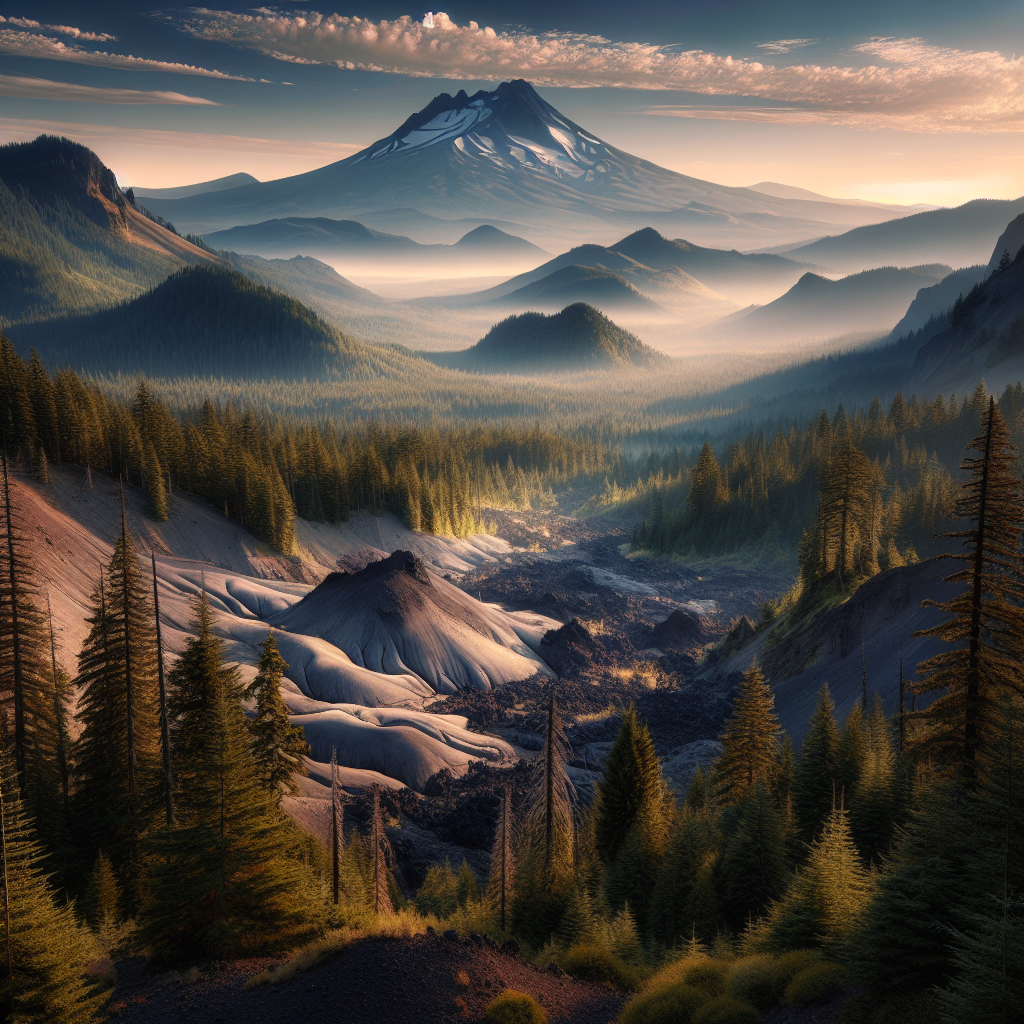Title: Oregon’s Volcanic History: An Insider’s Tour of the Cascade Range
#Introduction to Oregon’s Volcanic History
Unearth the tale of time through an invigorating exploration of Oregon’s dynamic volcanic past, in a mesmerizing journey through the Cascade Range. This collection of mountains, cascading waterfalls, and picturesque landscapes is where Mother Nature herself has carved a story of beauty and destruction over millions of years.
#Getting Started at Newberry National Volcanic Monument
Begin your journey at the Newberry National Volcanic Monument. Yes, it’s popular with tourists, but locals can’t help but return time and again, lured by the allure of panoramic views from atop the shield volcano, Newberry Caldera, and the tranquil beauty of Paulina and East Lakes nestled inside. Visitors in winter can expect snow, but the early fall render the park in spectacular hues, transforming it into a photographer’s paradise.

#Marvelling at Mount Bachelor
Not many places in Oregon celebrate their volcanic history quite like Mount Bachelor. An all-season resort built around a dormant volcano, it’s one of the many insiders’ secret spots in the Cascade Range. Skiers and snowboarders crowd here in winter, while hiking trails dominate the summer. But do remember, the afternoon weather changes quickly on the mountain, a secret locals have learned the hard way.
#Encountering the Magestic Mount Hood
Mount Hood, Oregon’s tallest peak, is more than a picturesque silhouette against the skyline. It’s a snow-capped marquee of the state’s volcanic past and an adventurer’s playground. For a unique experience, hike the Timberline Trail. Avoid peak summer though – it’s popular with tourists, and the locals crave solitude. Plus, the unpredictable glacial outbursts of the Eliot Glacier are safer to admire from a distance.
#Absorbing the Past at Mount St Helens
Just across the border in Washington, Mount St Helens offers a poignant reminder of Oregon’s volcanic history. The devastating eruption in 1980 stands as the most destructive in US history. Today, the Johnston Ridge Observatory offers an up-close insight into the event. Although Oregonians may often find the busy tourist arena a bit overwhelming, the historical experience and breathtaking views are worth braving the crowds.
#Ending the Journey at Crater Lake National Park
No exploration of Oregon’s volcanic history would be complete without a visit to Crater Lake National Park. Born of the cataclysmic eruption and subsequent collapse of Mount Mazama, Crater Lake is the deepest in the United States. Local tip: Post-Labor Day visits tend to offer quieter trails and clearer skies, but the rim drive can be snow-bound till late June.
#Final Tidbits and Insider Secrets
While the powerful tales etched into Oregon’s landscape tell a story of volcanic eruptions, it’s the resilience of nature and the vibrant ecosystem that recurs time and again. Always remember to respect the nature you’re privileged to witness, leave no trace behind, and carry ample supplies. In the age-old words of native Oregonians, “There’s no such thing as bad weather, only bad gear!”
Exploring Oregon’s dramatic volcanic past is like peeling back layers of time, uncovering geological secrets, and experiencing breathtaking, powerful landscapes. Take the time to appreciate the hidden gems, make your plans flexible to cater to Oregon’s often-fickle weather, and always listen to the whispers of the seasoned locals. There is always something new to discover, a secret trail to explore, or a vista to marvel at in the Cascade Range.
Just like a trusty old friend who always has a riveting tale to tell, Oregon’s volcanic history never ceases to impress. Next time you’re out exploring, remember, you’re walking on a story millions of years in the making, and there’s no better place to appreciate that than in the heart of Oregon, our beloved Cascade Range.
